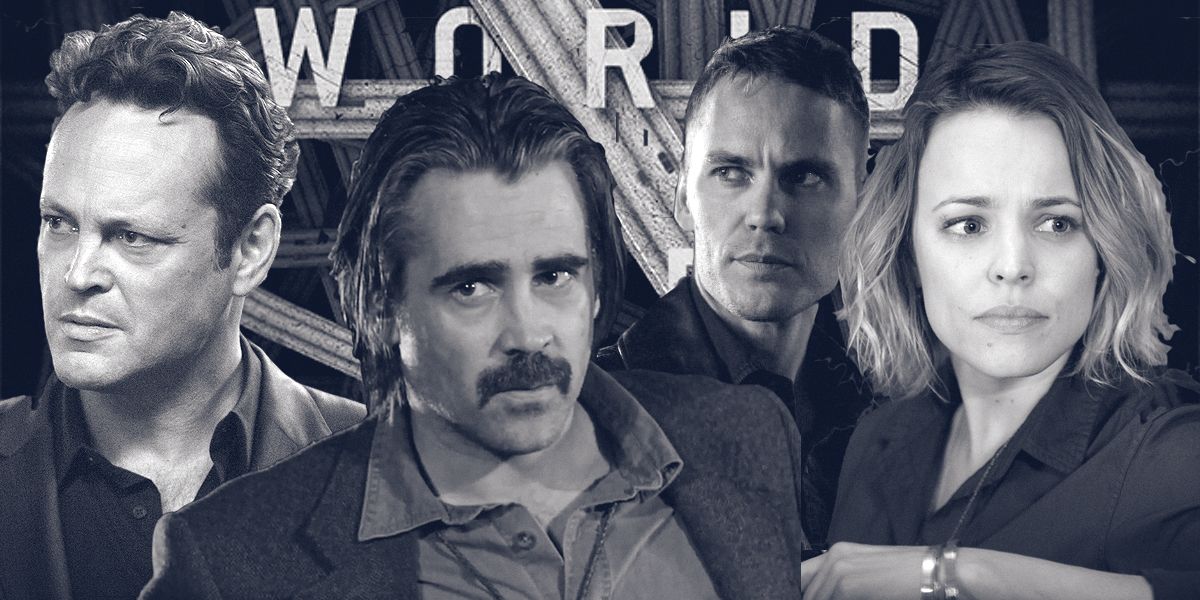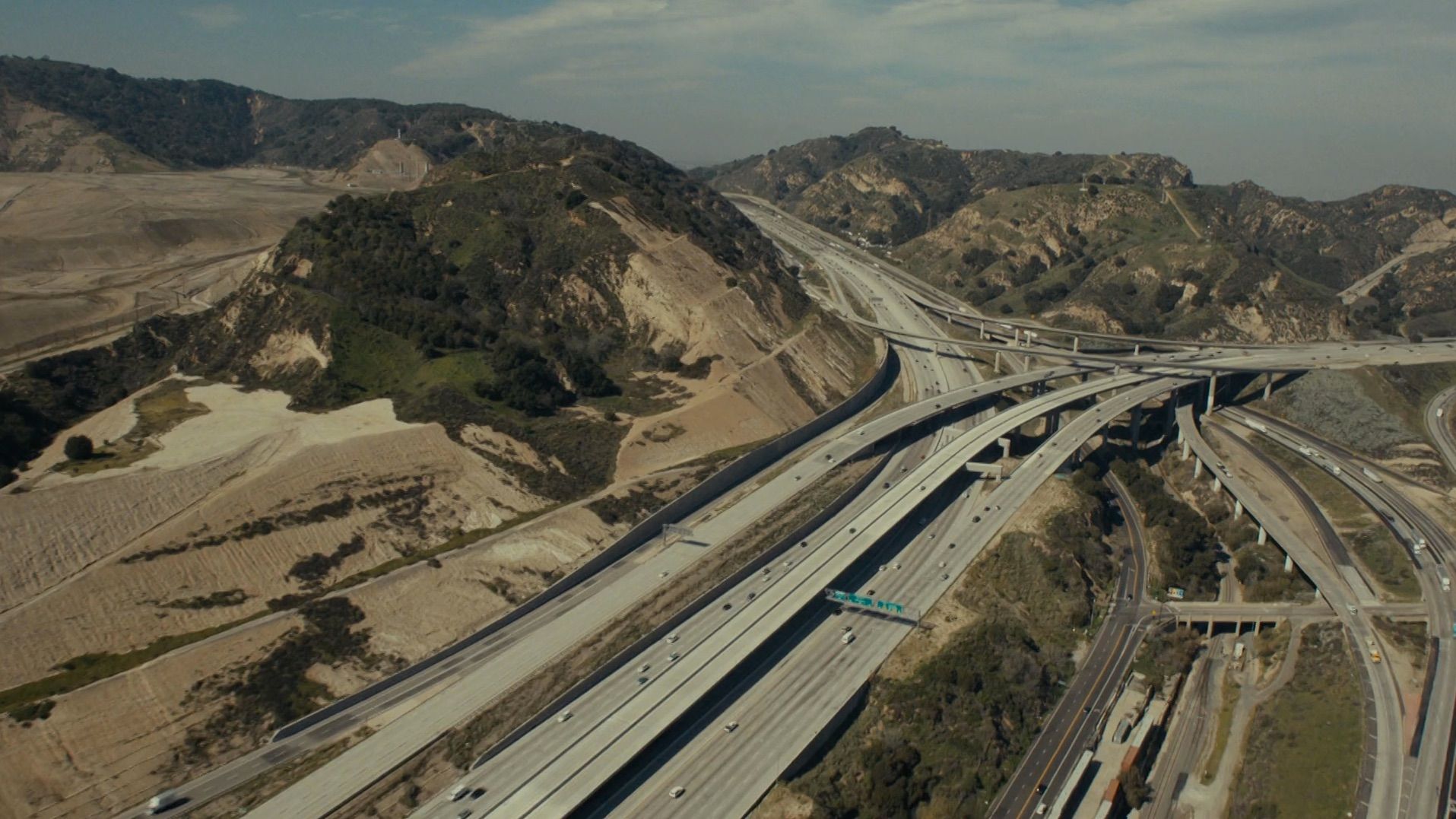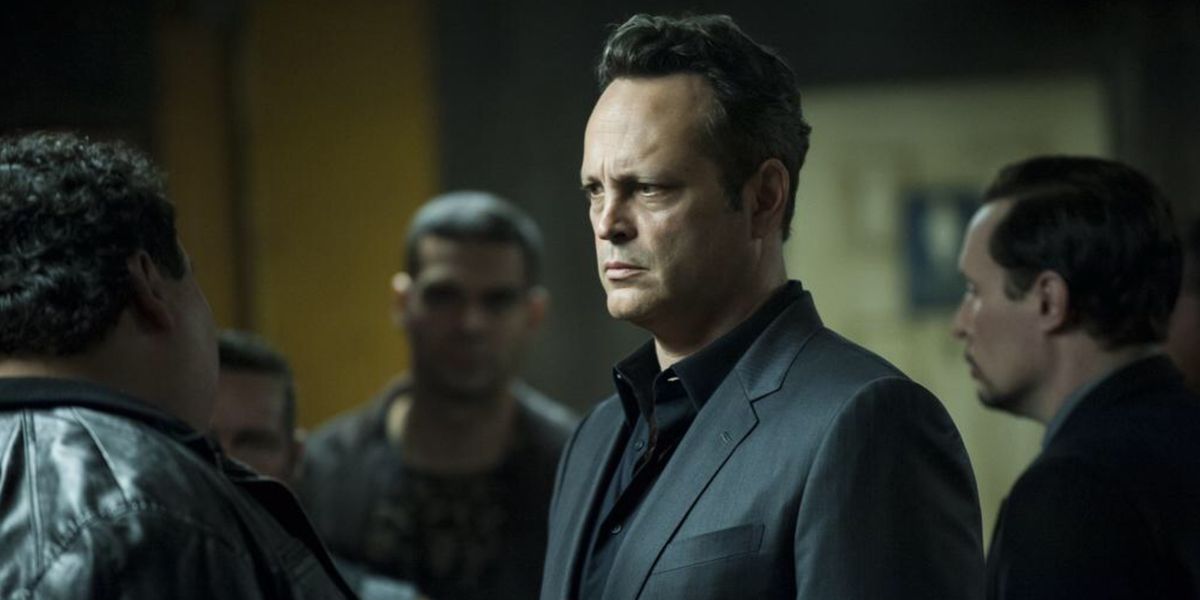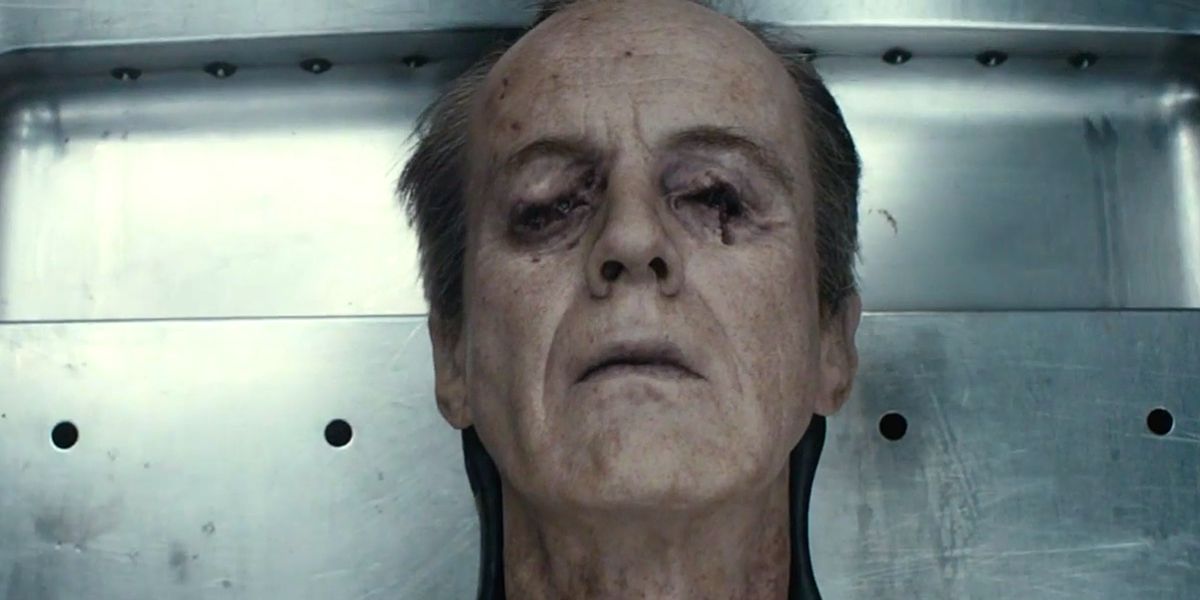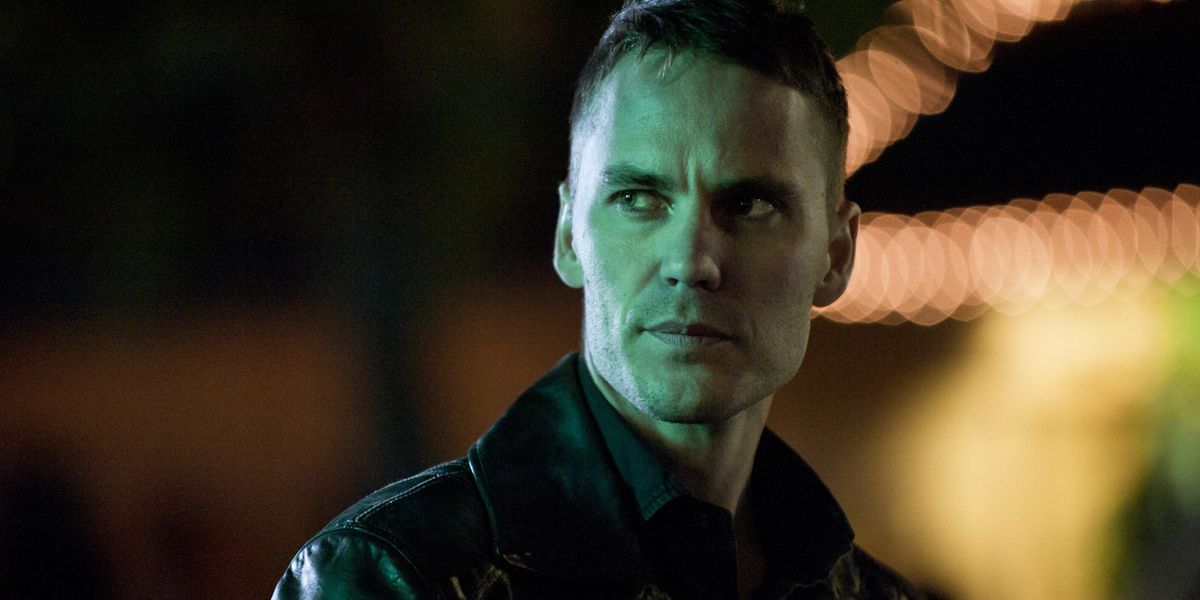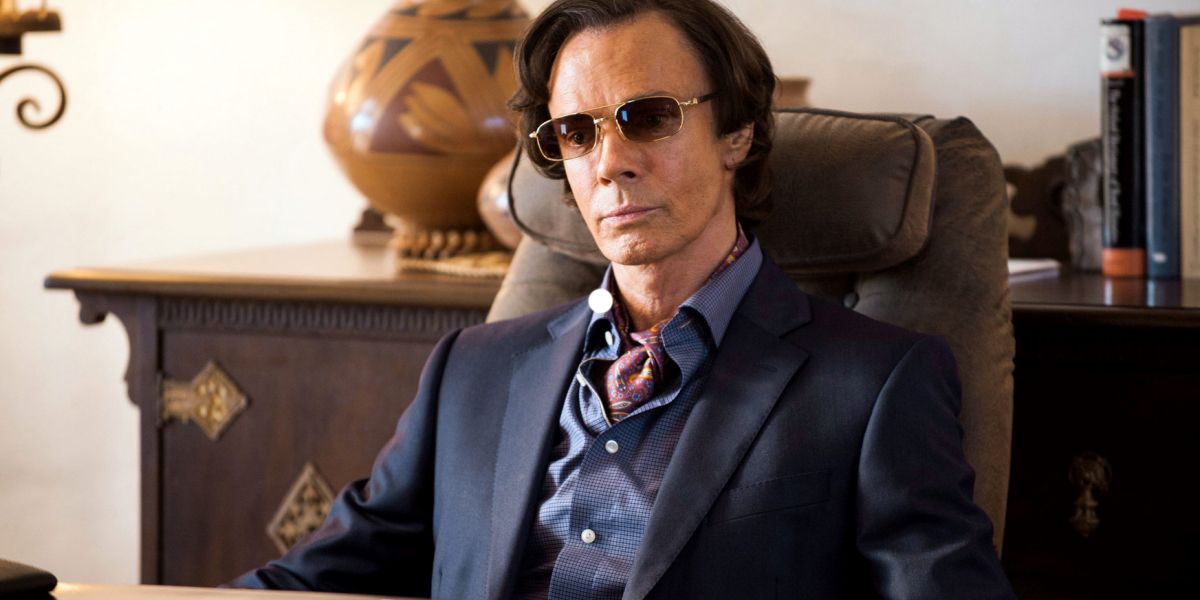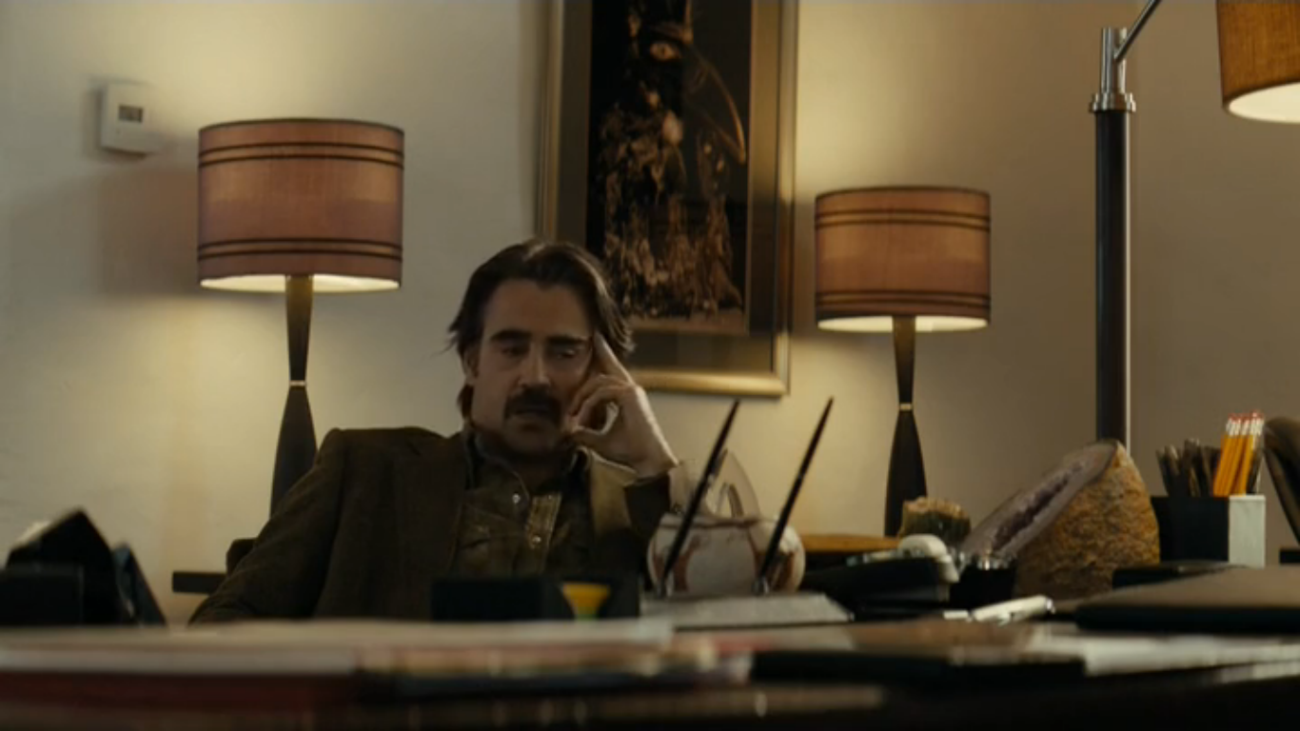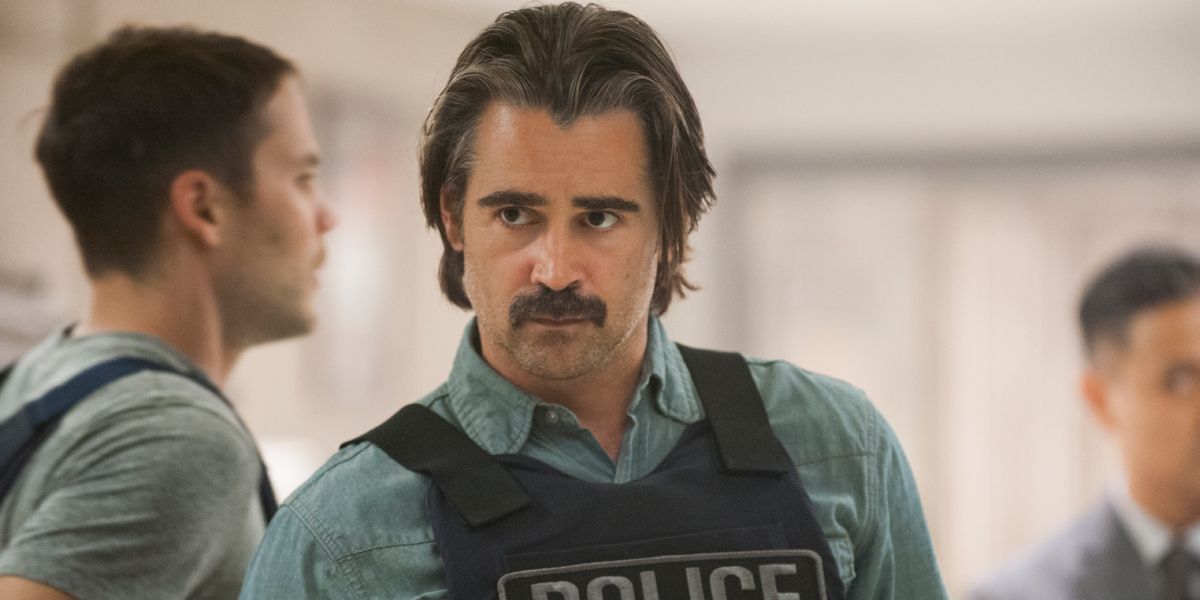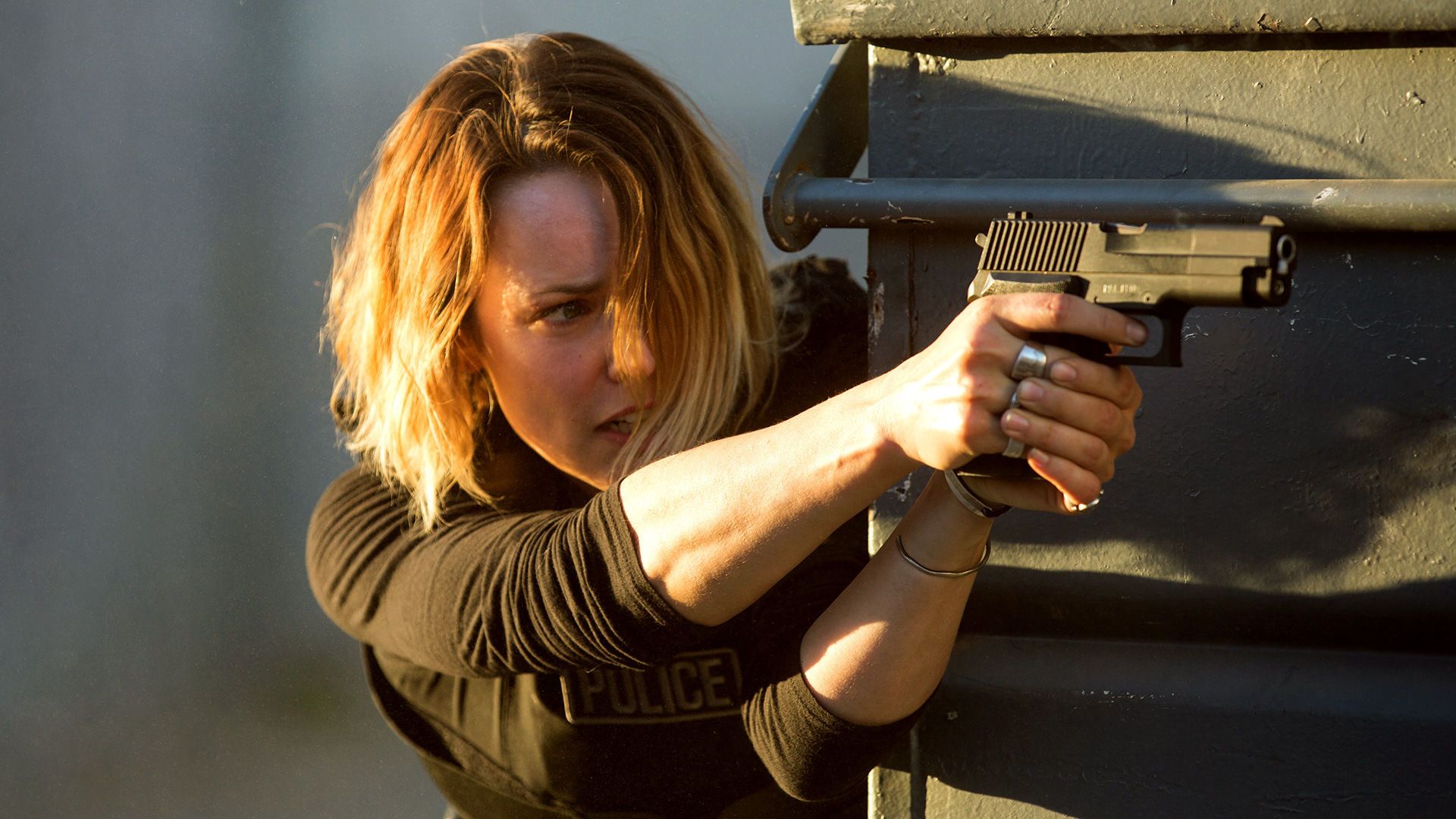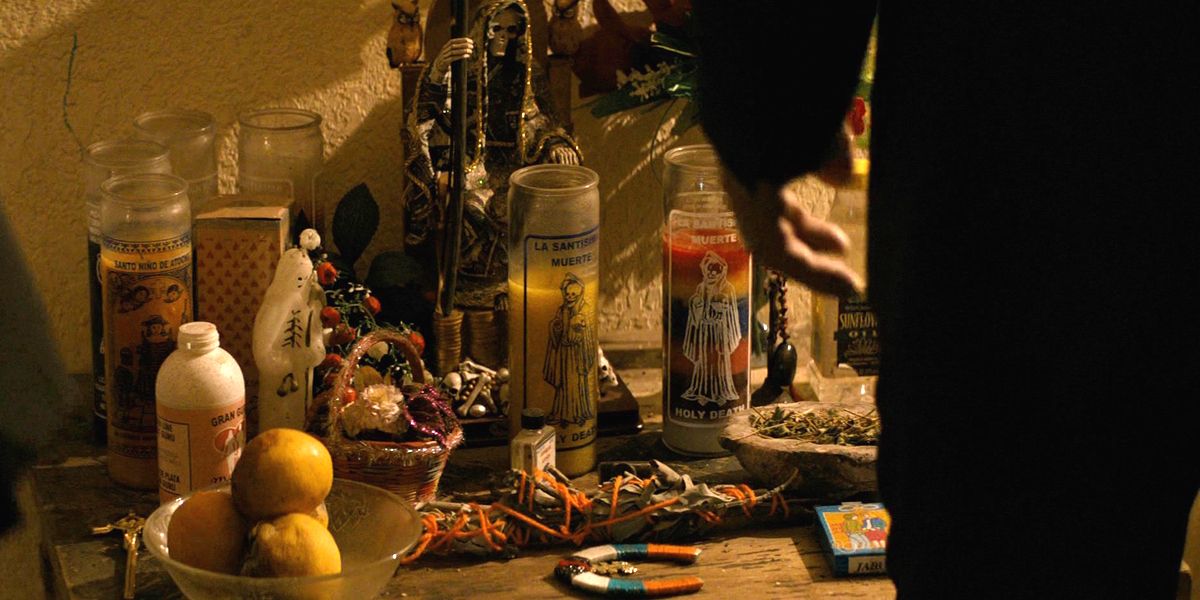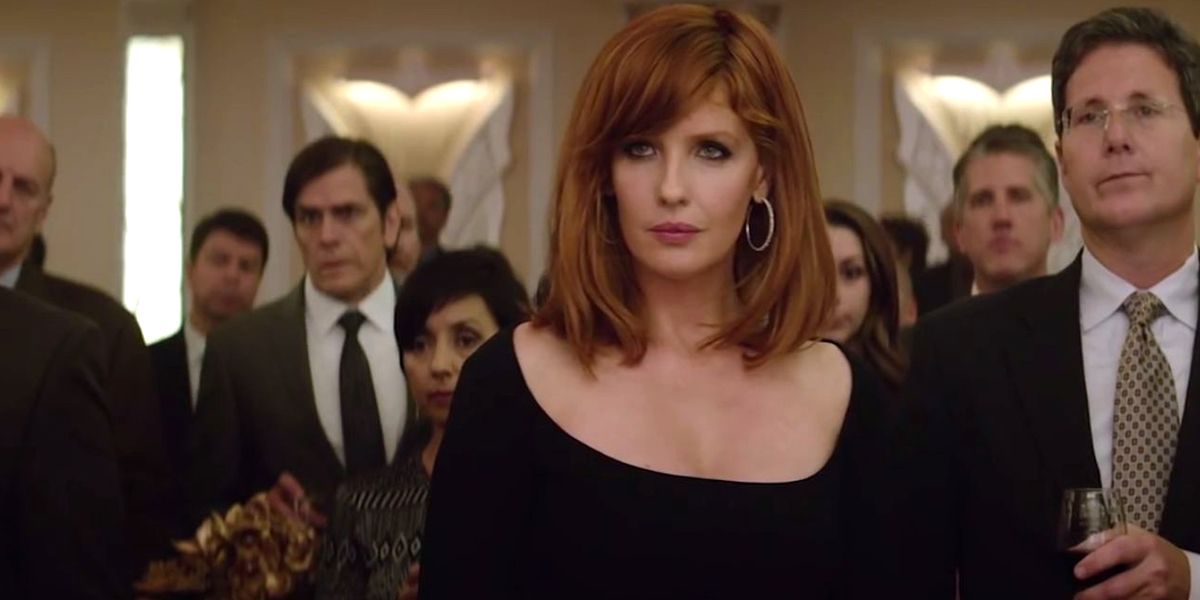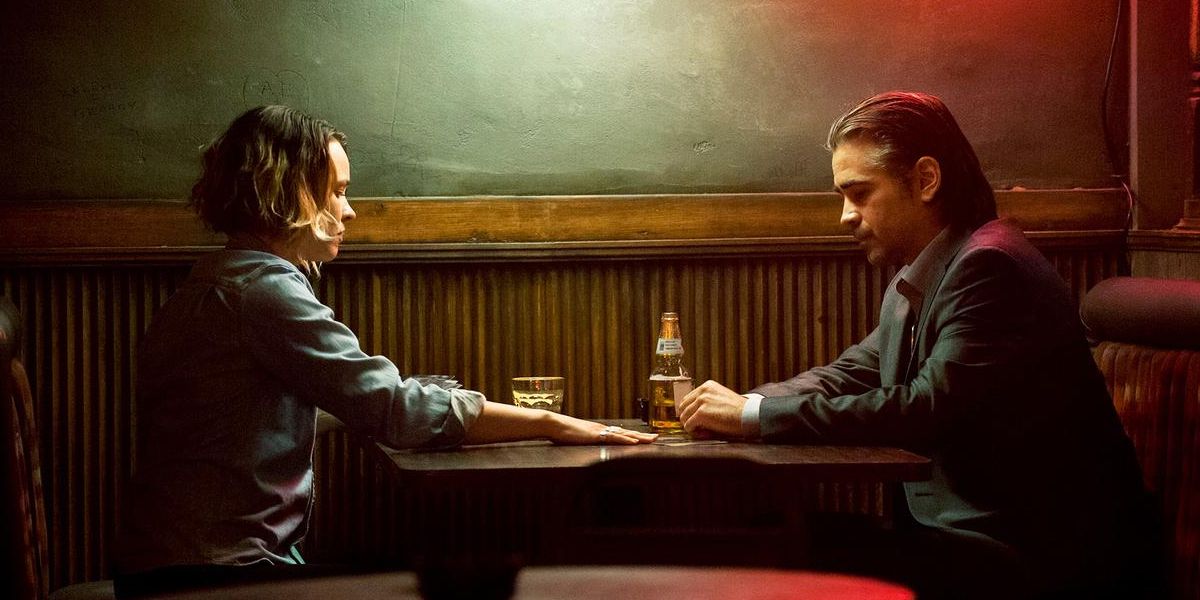[This article discusses specific details of True Detective season 2. There will be SPOILERS.]
-
True Detective has been kind of mess in season 2. The plot is incredibly dense and slow moving, and outside a pair of terrific performances by Colin Farrell and Rachel McAdams, it's been difficult to become engaged with anyone else in the cast. And what a cast of characters the show has had.
Along with the roadmap needed to navigate the byzantine storyline, each episode could have benefitted from a second screen experience, wherein, on their smartphones, laptops, or tablets, the audience is given all the pertinent information when one of the many essentially one-and-done performers (i.e., Stan, Ivar, Tony Chessani, Irina, Vera, etc.) appears onscreen. But the main problem hasn't so much been the cumbersome size of the series' ancillary cast - or that entire episodes were spent tending to the many spinning plates that aren't given a chance to matter (the $20,000 Paul had stashed away in his mother's trailer and didn't reveal until episode 5, anyone?); the problem has been that the show has struggled to give the audience – and most of its characters for that matter – a reason to be invested in what is actually going on.
There have been so many concurrent storylines running through season 2 that the important ones – you know, like the murder of Ben Caspere by the fella in a crow mask – have at one time or another been shoved aside in order for the series to stretch a relatively simple murder/land-grab conspiracy investigation into eight hours of staring at water stains, dad-punching antics, Lynchian appearances by Conway Twitty (which I loved, actually), and near heart-stopping coke binges that Colin Farrell's Ray Velcoro recovered from faster than most people do after eating two pieces of pie on Thanksgiving.
The thing is: many of these additions have weighed down the cast and, more importantly, weighed down what otherwise would have been a nimble crime story, if only it was given the appropriate time to marinate and develop. But True Detective season 2 didn't have time for that, and seeing all these potentially riveting storylines basically go unused is, if I may quote the water stain-reading poet known as Frank Semyon, "like having blue balls in your heart."
Let's take a look at some of True Detective's most promising yet underserved storylines introduced in season 2.
The Railway Expansion and Frank's Land Pollution
Strange as it sounds, this is actually one of the more fascinating aspects of True Detective's storyline. Real estate, land grabs, and willful pollution for profit make for a compelling mystery to follow (just take a look at Chinatown, one of the clear inspirations for this season's storyline), because it almost always involves an exclusive brand of seemingly untouchable criminal in order to be pulled off. And in today's political climate, that sort of ultra-wealthy, morally corrupt, politically influential yet felonious individual is likely of particular interest to the audience.
Just the details of the government's planned high-speed rail and what men like Osip Argonov (Timothy V. Murphy), Austin Chessani (Ritchie Coster), Ben Caspere, the Catalyst Group - and, as was revealed in 'Black Maps and Motel Rooms,' Tony Chessani (Vinicius Machado), the mayor's tanned son - were up to an effort to not only secure the land at a low price (which would then be sold to the government at a premium), but also to screw Frank out of the deal (and his clubs). It makes for a depressing storyline about the vastness of corporate and governmental corruption, but a gripping one nonetheless.
Perhaps, then, this story should have been investigated further and its details and ramifications shown, instead of having them simply told by Blake (Christopher James Baker) in an enormous info dump before a belly full of lead caused him to unleash something similar on the floor of Frank's office.
Ben Caspere's Murder
Yes, the murder of Vinci's city manager Ben Caspere was essentially solved in the penultimate episode, but that doesn't change the fact that, for much of the season, the entire reason for Ray, Ani, and Paul to become a not-so-super group – and for Frank to be tangentially involved – felt more like an afterthought than the true catalyst to the story.
For one thing, the way Caspere's ticket was punched was especially gruesome, and that alone seemed worthy of greater exploration. With his eyes burned out by acid and his genitals removed via a close-range shotgun blast, Caspere's death wasn't merely the result of some nefarious types looking to do away with the middleman; it was personal – or at least it should have been investigated from that understanding.
In crime fiction of this sort, the manner in which someone is killed typically reveals a great deal about the character and his or her killer. From Caspere's unique taste in home décor to his sordid, sound-proofed sex pad (complete with an adjacent room housing a camera and narratively relevant hard drive) it's clear the killer(s) took from Caspere that which he used most often – i.e., his peepers and his little true detective. Yet very little of Caspere's character has ever been explored, much less why his killers felt it necessary to make such a personal and public statement with his demise.
Perhaps the latter question will be revealed in the finale, but by then it will likely be too late for it to matter.
The Blessing and the Burden of Parenthood
Although many of the storylines seem discordant at times, there is one concurrent theme running between the four major characters. It is the idea of paternity, and the enormous emotional responsibility that comes from being (or the desire to become) a parent. And in keeping with True Detective's pessimistic heart, there isn't a parent-child relationship not corrupted or fouled in some way or another.
The most obvious is Ray's relationship with his son Chad (Trevor Larcom). To its credit, the series made it clear from the get-go (the kid's red hair being either a red flag or a red herring) that there were questions about Chad's parentage. It's all tied to the decision Ray made that effectively ruined his life, after being sold bad intel on the man who raped his then-wife, Gena (Abigail Spencer). All that is fascinating and tragic in a "how did this guy end up thinking bolo ties were a legitimate wardrobe accessory kind of way," but as with the other paternal avenues, the importance of it has been largely remanded to the sidelines.
Season 2 is certainly not wanting for opportunities to explore issues related to parenthood. There's Frank and Jordan's inability to conceive, the lax parenting of Ani's father Eliot (David Morse) that led to the sexual abuse she suffered as a child, and the emotionally destructive, possibly at one time inappropriate relationship between Paul Woodrugh and his mother Cynthia (Lolita Davidovich) - not to mention the child he has on the way with Emily (Adria Arjona). But even though all of this is presented to the audience in a surprisingly upfront manner, the issue of having a child, raising a child, or being a child never quite feels grounded in who these characters actually are; it just sort of floats there, waiting for a point to be made from it.
What's weird is how much a single Rust Cohle-esque monologue about the onus of life being on the child for having been conceived in the first place could have tied it all together in distinct True Detective fashion. Instead, we get five minutes of Frank getting lost in a water stain.
Dr. Pitlor and The Panticapaeum Institute
The only thing True Detective loves more than presenting fringe elements is leaving them on the margins. Nic Pizzolatto is constantly pointing out the strange, seedy world that exists beyond what most people are aware of - the places where monsters hide. But the only time we get to go inside them is when Rust and Marty are running around a "haunted house" at the end of the first season. Aside from weird sex parties and killers with a penchant for bird masks, season 2 boasts an enormous criminal conspiracy, existing on the periphery and hinting at the systemic corruption of various institutions.
That is essentially the season's overarching narrative, but because Osip and Tony Chessani's true intentions were only discovered a week before the finale, season 2 presented the failings of two other institutions to help create that through-line; namely, the inherent weirdness of Dr. Pitlor's one-stop cosmetic surgery/psychoanalysis enclave, and the Panticapaeum Institute, where Ani's father can sometimes be found.
The thing is, Pitlor (played by Rick Springfield with help from what looks like some leftover Rob Lowe makeup from Behind the Candelabra), for all his eccentricity and potential to serve as the gatekeeper to the darker weirdness being hinted at by the plot (for instance, turning the women at the sex parties from an "8 to a 10"), turned out to be little more than an exposition machine. After answering some questions early on, the good doctor was later transformed into punching bag for Velcoro and a way for the story to present its current list of hot topics as a series of bullet points, via the low growl of Farrell's line delivery.
Now you might not think that a man who named his daughters Antigone and Athena would be prone to making questionable choices. But, as it turns out, Eliot Bezzerides' role in the Panticapaeum Institute - wherein he lectures on things like "the last days of man," - might have contributed not only to his eldest daughter's abuse at the hands of a much older man, but also may have played a role in introducing Chessani to Pitlor, through his commune called The Good People.
Maybe Pitlor and Eliot Bezzerides were interesting because of their weirdness and ability to spot a "huge aura," but there's something interesting about the institutions they have aligned themselves with, and the brief investigation of both during the season simply didn't allow for a proper exploration of those characters or the institutions.
NEXT PAGE: Death & War
War and the Ramifications Extreme Violence
Even though it made little sense, the incredibly violent shootout in 'Down Will Come' had the potential to bring with it the recognition of how these characters are generally more comfortable in their own skin during times of crisis - or, to put a finer point on it, times of war. Paul is the best example of this, not only because he came back from Afghanistan scarred both physically and emotionally, but also because the shootout with Ledo Amarilla (Cesar Garcia) and his crew was the first time the character was given a moment to shine.
And yet in the episode following the Amarilla shootout – an act of violence that would undoubtedly be considered one of the worst shootouts in U.S. history – there's hardly any mention of it at all. It's just 66 days later and no one - not Paul, Ani, Ray, or Frank - has anything to say about it other than (and I'm paraphrasing): "Well, that was a thing that happened."
Sure, there are some ramblings about the whole thing being a set-up by Chessani, Holloway (Afemo Omilami), and Burris (James Frain) to get Teague Dixon (W. Earl Brown) and the rest of the task force out of the way, but that only connects the dots of the narrative; it does nothing to add weight to a moment that should have defined each and every one of these characters moving forward. Instead, the only repercussion the audience is able to see and experience is Velcoro's upper lip is no longer wearing a fuzzy hat.
What's troublesome about the lack of acknowledgment regarding Amarilla is it first renders the event meaningless, and secondly it tells us nothing about how the characters have processed what transpired. Yes, the trio live in a violent world and are prone to committing acts of violence themselves, but there needs to be, for each and everyone of them, some kind of recognition of how they came through the other side of a horrendous life-and-death situation and were changed by it.
Santa Muerte
So how exactly does Mexico's cult of Holy Death get introduced in the first episode (that skeleton wearing a woman's shawl in Caspere's house was the first entry) but only serves as a tangential part of a television program that is otherwise obsessed with death? You could maybe make the case that Santa Muerte was intended to give season 2 the same slightly supernatural vibe that made so many people go nuts over season 1, but so far the introduction of the patron saint of death has only yielded one question-filled moment, and an off-the-cuff remark from Frank to a cartel member, while he was trying to track down Irina.
There is an angle just begging to be explored by something as purportedly gritty and willing to venture into the dark places as True Detective is, and that is the role Santa Muerte plays in the vicious cartel wars being played out in Mexico. Many cartels erect shrines to the saint, as a way of asking for protection for their bloody deeds. That's fascinating, terrifying stuff, and yet the only glimpse of it we get here is a single shrine – which is itself a common real-life occurrence in many cartel-related kidnapping cases – and a one-and-done observation directed toward a guy being tortured.
As sad as it is to say, asking a show such as this to explore an intriguing piece of another culture is probably asking too much – especially when you consider Frank's facile, racially-charged acknowledgment of the standoff he and his men find themselves in. But when such an aspect seems as tailor-made for a series as Santa Muerte does this very special California edition of True Detective, the absence of any true examination of the subject is a major missed opportunity.
Jordan Semyon
Just who the heck is Jordan Semyon? Kelly Reilly has been doing her best with the role, but after a while, there's only so much to be done with the limited characterization she's been given. Is she simply a devoted wife to a low-level gangster who has clearly been tangling with men out of his league, or is she something more? So far, Jordan has only had the opportunity to listen while Frank waxes poetic about dark rooms and rats, and how he doesn’t want to manage an Applebee's. And frankly, the biggest surprise is that Jordan hasn't asked her husband if he can actually hear the words that have been coming out of his mouth.
One of the best things about season 1 was how Woody Harrelson's Marty Hart would call our McConaughey's Rust Cohle on all the ridiculous things he would say. Given that Frank has had some pretty terrible lines this season, it's a shame Jordan wasn't able to find her inner Marty Hart to call her husband on all his nonsense.
At this point, the only way for Jordan to not go down as the most somnambulistic, sponge-like character in all of television is if it were revealed she was behind her husband's downfall from the beginning. I have no idea how that might work, but at least it would convince everyone watching that Jordan wasn't just sleepwalking through the last eight hours of television.
-
Conclusion
True Detective season 2 has been filled with so many tantalizing good parts that the biggest surprise was how it refused to fully explore any of them. Instead it chose to do what so many television series with sprawling narratives do: confuse "complicated" with "complex." There's nothing wrong with telling a modest story well, but here it seems that modest might have been the last thing True Detective wanted to follow up season 1 with. There is still a chance that the finale will pull off the epic feat of turning the narrative's many wrong turns and unexplored avenues into something satisfying, but for now it seems as though this will go down as a case of one missed opportunity after another.
True Detective season 2 concludes with the finale episode 'Omega Station' on Sunday, August 9 @9pm on HBO.

